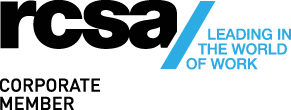HR as a Value-Adding Partner
David Ulrich states, “HR must give value or give notice” – a powerful reminder that HR’s primary role is to add value to the business. This value addition goes beyond routine tasks and encompasses strategic involvement in shaping the company’s direction and culture.
While processes and systems are essential for operational efficiency, Ulrich argues that they should not overshadow the fundamental objective of HR: to add value. He writes, “The value of HR is not in what it does, but in what it delivers to stakeholders.” This means that HR business partnerships should focus on outcomes that matter to the business, such as improving employee performance, fostering innovation, and enhancing customer satisfaction.
It requires HR practitioners to let go of old ways and develop new skills, be current with emerging technologies and maintain digital literacy; and find creative ways to integrate and simplify HR functions with the overall business strategy.
Conversations with Strategic Influence
Ulrich also emphasises the importance of HR professionals engaging in conversations that reflect and uphold the organisation’s values and vision. He notes, “Conversations are not just about exchanging information; they are about building relationships and creating shared meaning.” Values and company vision are integral to driving culture. Values are not just words on a page; they are the guiding principles that shape our interactions, decisions, and strategies and everyone, must live and breathe these each day.
HR value comes from fostering open conversations that have strategic intent. This involves listening actively to employees, addressing their concerns, and aligning their aspirations with the company’s goals. Such engagement not only enhances employee satisfaction and retention, can reduce conflict and disputes; and drive organisational performance and growth.
WorkTrybe’s approach to HR business partnerships is rooted in our core values:
- Integrity: We maintain transparency and honesty in all our dealings, ensuring that trust is the foundation of our relationships with employees and stakeholders.
- Collaboration: We foster a collaborative environment where teamwork and collective problem-solving are encouraged and rewarded.
- Innovation: We continuously seek out new ideas and approaches to enhance our HR practices and drive business success.
- Respect: We value and respect the diverse perspectives and contributions of all employees, creating an inclusive and supportive workplace culture.
By adhering to these values, we ensure that our HR practices are not just efficient but also meaningful and impactful. Our HR business partnerships are designed to align with these values, ensuring that every action we take contributes to building a better organisations.
Conclusion
The value of HR business partnerships lies in their ability to transcend traditional administrative roles, continuously adapt and uphold the strategic fabric of the organisation. As David Ulrich eloquently articulates in "The HR Value Proposition," the true worth of HR is in the value it delivers to stakeholders through meaningful conversations, strategic alignment, and a steadfast commitment to core values.
Let this always be your new measure of success when you finish work each day.












